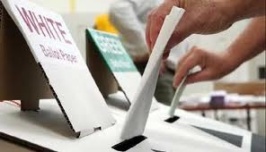Does anyone else remember the short, sharp election campaign?
You should all recall them. The Prime Minister calls the election shortly before the 33 day minimum campaign period from the return of the writs, and the photo opportunities begin in earnest, babies are kissed, pamphlets distributed and our television screens are peppered with ads attacking opponents or praising themselves.
And then a little between a month and two months later, it’s all over. The winners are celebrating and the losing party is dredging through the campaign entrails to see if they can figure out what went wrong.
For the people, life goes on with a returned or new government, the short disruption to their lives that was the election all but forgotten.
But that isn’t the case in Australia in 2013.
Prime Minister Julia Gillard today addressed the National Press Club and during her speech announced that Australians would go to the polls on 14 September, 2013.
Technically this isn’t the start of the campaign. This doesn’t officially occur until the return of the writs by the Australian Electoral Commission, and the Constitution does not allow for this to happen until a maximum of 68 and minimum of 33 days before polling day.
But that’s just a technicality. As far as the politicians are concerned, the campaign began on 30 January, 2013 at lunch time (daylight saving time) when the Prime Minister advised that 14 September would be polling day.
I bet press club guests could have heard the opposition media and policy advisors swing into action at Parliament House a few kilometres away when the impact of the PM’s words became clear.
The hapless taxpayer can now enjoy more than seven months – or 225 days to be precise – of the in-your-face politics that has become associated with modern Australian election campaigns.
Once upon a time, actually not all that long ago, political leaders preferred to announce a campaign as a surprise attack on the opposition, catching them off guard and making them scramble.
Campaigns on average lasted between 33 and 50 days, with those that went over 60 days considered extraordinarily long and somewhat tiresome.
No doubt, Gillard’s reasoning is that so far Opposition Leader Tony Abbott and his Liberal/National coalition have surrounded themselves in a policy free cocoon, content to steal government through criticism without substance.
Calling the election almost a year out will force the opposition to not only release policies, but fully explain their intended actions following genuine and detailed community consideration.
Queenslanders will recall their premier Anna Bligh doing the same thing before the March 2012 state election.
On 25 January she announced that the election would be held on 24 March. She also stressed that the actual campaign would not begin until 18 February. This allowed her to call a phoney campaign at the beginning of the year without having to worry about traditional caretaker conventions that limit government promises and spending when that government is pleading to be returned.
Of course, Queensland had actually been in election mode for 12 months before polling day, when in April 2011 Brisbane Lord Mayor Campbell Newman announced his resignation from council, his intention to run for Parliament and his immediate bid for the leadership of the LNP.
And we all know how that turned out.
Nevertheless it is the same strategy now being put in place by Julia Gillard.
She argues that announcing the date now, without actually calling the election, will ‘allow businesses and consumers to plan their year.’ This may be the case, although many would query just how knowing the exact date on an election – whether it is next week, six months or a year away – can in any way help with the implementation of a business plan.
I suspect, however, it has more to do with Gillard, like Bligh before her, creating a false campaign period that will still allow the government to make announcements, distribute funding and win votes before the restrictions on such activities are put in place when the real campaign starts.
She will also be hoping a long campaign will see Tony Abbott and his team stumble, or that they will not be able to develop well considered policies or be able to explain them if they do.
They will also be hoping, greatly hoping, that this strategy works better than it did in Queensland for Anna Bligh against Campbell Newman and the LNP.
